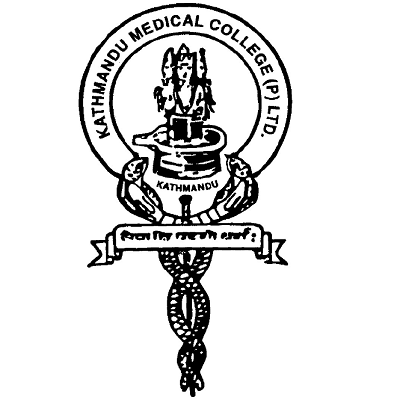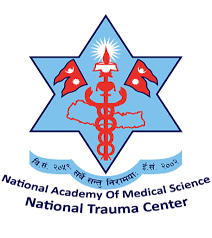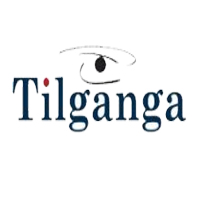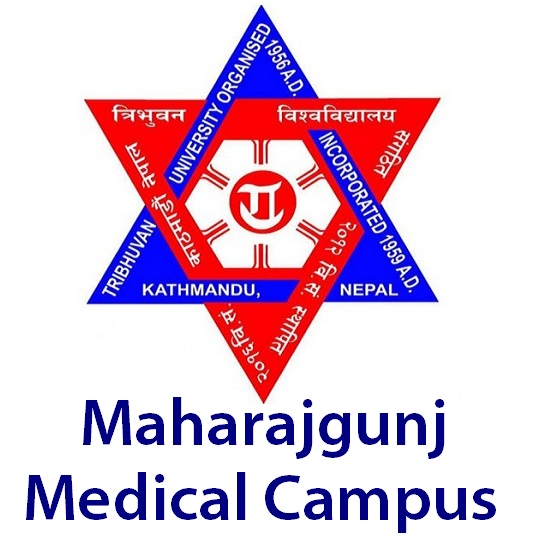Overview
MD Microbiology at Nepalese Army Institute of Health Sciences (NAIHS) College of Medicine
MD Microbiology at the Nepalese Army Institute of Health Sciences (NAIHS), College of Medicine, is a postgraduate residency program for doctors who want to specialize in medical microbiology and laboratory-based diagnosis of infectious diseases. The college runs its academic programs under the affiliation of Tribhuvan University, Institute of Medicine (TU-IOM), and its medical courses are regulated by national bodies such as the Medical Education Commission and the Nepal Medical Council.
The program follows the MD Microbiology curriculum of TU-IOM, where MD Microbiology is a three-year master’s level medical degree delivered through structured residency training. At NAIHS, training takes place in the Department of Microbiology and the teaching hospital network led by Shree Birendra Hospital, a 635-bed tertiary care hospital of the Nepali Army used as the main clinical base for NAIHS programs.
If you are a medical graduate who enjoyed microbiology during MBBS and want a career centered on infectious disease diagnosis, infection control, and teaching, this course offers a structured pathway within a disciplined institutional environment that serves both army personnel and the wider community.
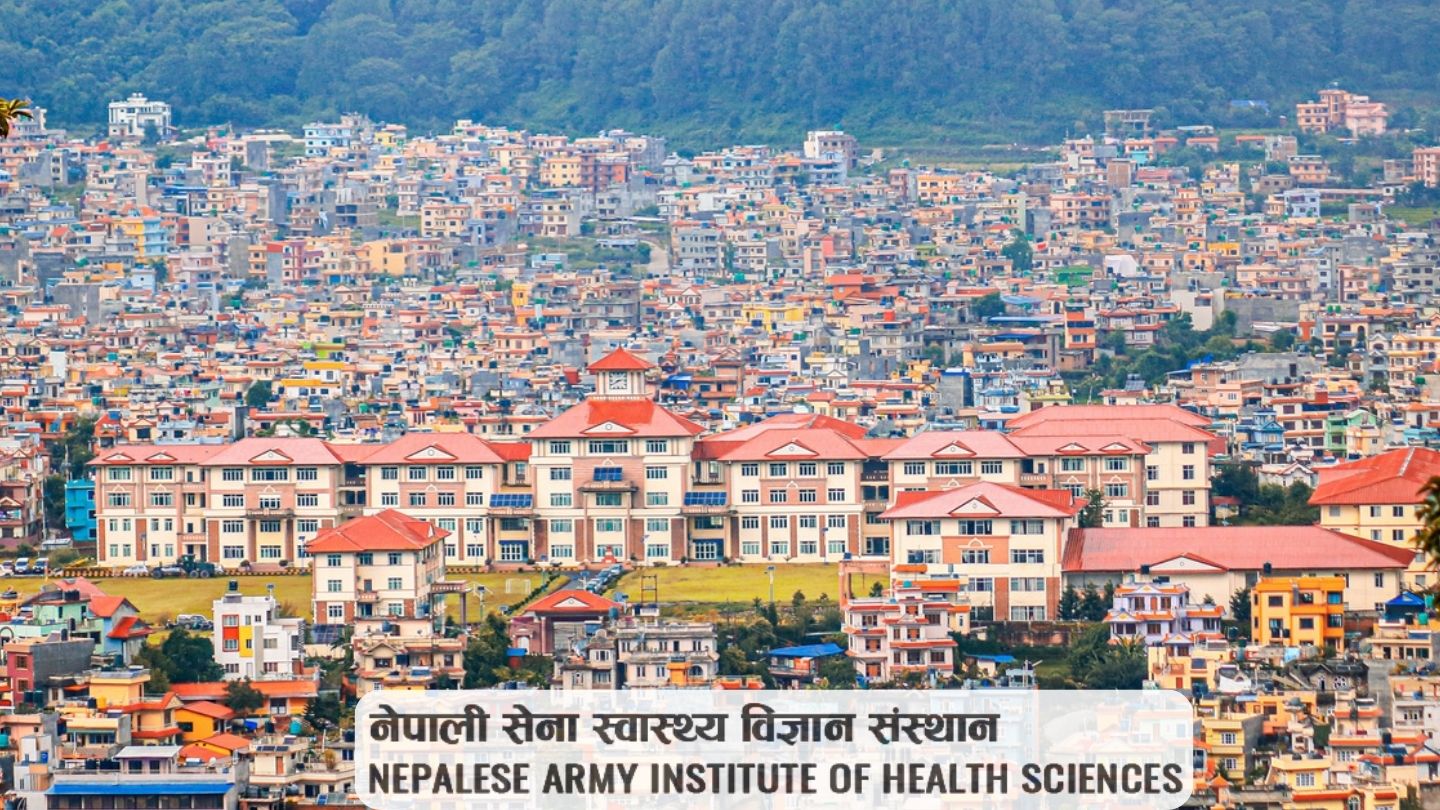
Highlights of MD Microbiology at NAIHS
-
Degree awarded: Doctor of Medicine (MD) in Microbiology
-
Institution: Nepalese Army Institute of Health Sciences – College of Medicine (NAIHS-COM), Bhandarkhal, Sanobharyang, Kathmandu
-
Affiliation: Tribhuvan University, Institute of Medicine (TU-IOM)
-
Duration: 3 years full-time residency
-
Seat at NAIHS: 1 seat (as per the current internal seat distribution shared in the college profile)
-
Approximate tuition fee: NPR 1,085,870 (students should confirm the latest fee structure from official NAIHS notices before admission)
-
Teaching hospital: Shree Birendra Hospital, Chauni, Kathmandu, and associated army health facilities
-
Target group: MBBS graduates aiming to work as clinical microbiologists, academic staff, infection control specialists, or researchers in Nepal and abroad
Curriculum Details
Programme structure and duration
The MD Microbiology program under TU-IOM runs for three years and follows a residency model. During this period, students remain attached full-time to the department and laboratories, and follow the academic and administrative rules of postgraduate programs under IOM, including residential training and restrictions on private practice.
Training usually includes:
-
Departmental postings in bacteriology, virology, mycology, parasitology, and immunology
-
Rotations in clinical services where infectious disease cases are managed
-
Participation in infection prevention and control activities in the hospital
-
A research thesis related to medical microbiology as per TU-IOM guidelines
Key academic areas
The curriculum covers the major domains of medical microbiology such as:
-
General microbiology and microbial physiology
-
Immunology relevant to host–pathogen interaction
-
System-wise clinical microbiology (respiratory, gastrointestinal, genitourinary, CNS, bloodstream infections, etc.)
-
Antimicrobial agents, resistance mechanisms, and antimicrobial stewardship
-
Hospital infection surveillance, outbreak investigation, and control strategies
-
Quality assurance, biosafety, and biosecurity in diagnostic laboratories
-
Basics of molecular microbiological methods as available within the IOM framework
Laboratory and clinical exposure
Students spend most of their time in the microbiology laboratories of NAIHS and its teaching hospital, handling real patient samples, interpreting reports, and discussing findings with clinicians. Regular participation in ward rounds, case presentations, journal clubs, and clinico-pathological meetings strengthens the bridge between laboratory findings and patient care.
Objectives
The MD Microbiology program at NAIHS aims to:
-
Prepare specialists who can manage and supervise hospital microbiology laboratories safely and effectively
-
Develop strong skills in diagnosis of infectious diseases using conventional and advanced laboratory methods
-
Build capacity for planning and conducting research related to microbiology and infectious diseases
-
Prepare future faculty members for medical colleges across Nepal where there is ongoing demand for qualified basic science teachers in microbiology
-
Support national infection prevention and antimicrobial resistance control efforts through accurate laboratory evidence
For you as a prospective student, these objectives translate into a training experience where clinical reasoning, laboratory skills, and academic growth move together.
Scope of MD Microbiology in Nepal
Demand for medical microbiologists in Nepal remains strong due to the burden of infectious diseases and the need for reliable laboratory services in both public and private sectors.
After completing MD Microbiology from NAIHS under TU-IOM, graduates can:
-
Work as consultant microbiologists in teaching hospitals, military hospitals, and regional centers
-
Serve as academic staff (lecturer, assistant professor) in medical and health-science colleges
-
Join public health laboratories and reference laboratories involved in surveillance of tuberculosis, HIV, influenza, enteric diseases, and other infections
-
Contribute to research projects focusing on antimicrobial resistance, emerging infections, and hospital infection control
This scope is relevant both for those who wish to remain in Nepal and for those who later plan to compete for positions in other countries, subject to local recognition and licensing rules.
Learning Outcomes
By the end of MD Microbiology at NAIHS, students are expected to be able to:
-
Interpret routine and special microbiological tests, correlate results with clinical features, and issue clear laboratory reports
-
Select appropriate diagnostic tests for suspected infections and advise clinicians on sample collection and transport
-
Recognize and respond to outbreaks within the hospital setting through laboratory-supported investigation
-
Apply principles of biosafety and waste management in microbiology laboratories
-
Plan, execute, and write up a research study in medical microbiology following ethical and scientific standards
-
Teach undergraduate and postgraduate students using suitable teaching-learning methods
For many students, these outcomes become the foundation for a long-term career where laboratory work, teaching, and research interact on a daily basis.
Skill Development Modules
During residency, students gradually develop:
-
Technical skills
-
Handling and processing of clinical specimens
-
Culture techniques for bacteria, fungi, and mycobacteria
-
Identification methods (microscopy, biochemical tests, automated systems as available)
-
Antimicrobial susceptibility testing and interpretation as per standard guidelines
-
-
Analytical skills
-
Correlation of laboratory data with patient status
-
Participation in antimicrobial stewardship discussions
-
Interpretation of surveillance data for hospital infections
-
-
Research and academic skills
-
Formulating research questions in infectious diseases and microbiology
-
Conducting data collection and analysis
-
Presenting findings in departmental meetings, conferences, and scientific journals
-
-
Managerial skills
-
Organizing workflow in a microbiology laboratory
-
Supporting quality assurance processes
-
Participating in equipment and reagent management
-
Teaching Methodology and Learning Environment
NAIHS follows the medical education principles of TU-IOM and uses a mix of teaching-learning methods in its basic science departments, including structured lectures, practical sessions, tutorials, and small-group discussions. At postgraduate level, MD Microbiology relies heavily on:
-
Case-based discussions with clinicians
-
Hands-on laboratory work under faculty supervision
-
Journal clubs and seminars focusing on current topics in microbiology and infectious diseases
-
Bed-side and ward-based teaching when relevant to infectious cases
-
Guided thesis work with regular supervision
The setting within an army-run institute also offers a disciplined academic culture, where punctuality, accountability, and professional ethics receive continuous attention.
Admission Requirements
Admission policies for MD Microbiology in Nepal follow the national framework set by the Medical Education Commission (MEC) and TU-IOM. Key points usually include:
-
Basic qualification: MBBS or equivalent degree from a recognized university
-
Registration: Valid registration in the Nepal Medical Council (or relevant national council for foreign graduates)
-
Experience: Internship completion and, for many categories, at least one year of work experience after registration (except for some basic science tracks as per MEC rules)
-
Entrance examination:
-
Passing the MECEE-PG (Medical Education Commission Entrance Examination for Postgraduate programs) with at least 50% marks to be included in the merit list
-
Selection and matching to NAIHS MD Microbiology seat through MEC’s merit-based matching and counseling system
-
Foreign students must follow MEC rules for international candidates and provide additional documentation as required. Applicants should always refer to the latest notices from MEC and NAIHS before applying, since national regulations and seat distribution may change across academic years. (Edusanjal)
Career Opportunities
Graduates of MD Microbiology from NAIHS can consider multiple career paths:
-
Teaching and academic posts
-
Lecturer or assistant professor in microbiology in medical, dental, and allied health-science colleges
-
-
Hospital microbiology and laboratory medicine
-
Consultant microbiologist in tertiary care hospitals, including military hospitals and large private institutions
-
Roles in infection prevention and control committees and antimicrobial stewardship teams
-
-
Public health and reference laboratories
-
Positions in national reference laboratories for tuberculosis, HIV, influenza, enteric infections, and other priority diseases
-
-
Research and development
-
Participation in clinical trials and operational research related to infectious diseases
-
Collaboration with NGOs, INGOs, and research organizations working on public health and laboratory strengthening
-
Your final career direction may depend on your interest in academics, hospital practice, or research, but the core qualification creates a strong platform for all three.
Scholarships and Financial Aid
NAIHS is run under the welfare structure of the Nepali Army and provides tuition fee waiver schemes for eligible dependents of army personnel, including martyr families and fully disabled personnel, as well as rank-based tuition concessions for children of serving and retired officers, JCOs, and other ranks.
For MD Microbiology, availability of scholarships or partial fee waivers depends on internal NAIHS policy for that academic year and on national provisions under MEC for government-sponsored seats. Students should monitor:
-
Official NAIHS notices for PG seats and fee categories
-
MEC PG scholarship and subsidy schemes as published in MECEE-PG related documents
This is particularly important if you plan your long-term finances for a three-year residency where outside clinical practice is restricted.
Why Choose MD Microbiology at NAIHS College of Medicine?
-
Structured residency under TU-IOM: The program follows a nationally recognized MD Microbiology curriculum linked to the oldest public university in Nepal.
-
Strong teaching hospital base: Shree Birendra Hospital and the army medical network expose students to a broad range of infectious diseases, trauma-related infections, and referral cases from across the country.
-
Disciplined institutional culture: The army setting encourages professionalism, punctuality, and a service-oriented mindset that many students find helpful for long-term career growth.
-
Contribution to national needs: Nepal faces ongoing challenges from tuberculosis, enteric infections, respiratory infections, and antimicrobial resistance. Specialist microbiologists trained in institutions like NAIHS contribute directly to these priority areas.
Conclusion
MD Microbiology at NAIHS College of Medicine is a three-year postgraduate medical program under Tribhuvan University that prepares doctors for specialist roles in diagnostic microbiology, infection control, teaching, and research. The program links intensive laboratory work with clinical exposure and research, under a disciplined institutional culture and a strong teaching hospital base.
Prospective applicants should carefully review MEC and NAIHS notices for the latest admission rules, seats, and fees, reflect on their interest in laboratory medicine and teaching, and plan for a full-time residency commitment. This helps ensure that the decision to enter MD Microbiology aligns with both personal interests and national health needs.
Frequently Asked Questions (FAQ)
1. What is the duration of MD Microbiology at NAIHS?
MD Microbiology under TU-IOM is a three-year postgraduate residency program conducted on a full-time basis.
2. Who is eligible to apply?
Applicants need an MBBS or equivalent degree, valid Nepal Medical Council registration, completion of internship, the required work experience as per MEC rules, and a qualifying score (minimum 50%) in the MECEE-PG examination.
3. How many MD Microbiology seats are available at NAIHS?
As per the current internal data used for the NAIHS College of Medicine profile, there is 1 MD Microbiology seat. Seat numbers may change, so you should confirm with the latest NAIHS and MEC notices before applying.
4. What is the approximate fee for MD Microbiology at NAIHS?
The approximate tuition fee shared in the college’s internal fee structure is NPR 1,085,870 for the MD Microbiology program. Students should verify the latest official fee notice because tuition and other charges can be revised.
5. Can MD Microbiology residents do private practice during the course?
Postgraduate medical programs under TU-IOM are non-practicing courses. Residents are expected to remain full-time in training and are generally not allowed to engage in private clinical practice during the residency period.
6. What kind of jobs can I expect after MD Microbiology from NAIHS?
Graduates usually work as consultant microbiologists, academic staff in medical colleges, specialists in hospital infection control teams, or researchers in public health and laboratory-based projects, depending on personal interest and available opportunities.


